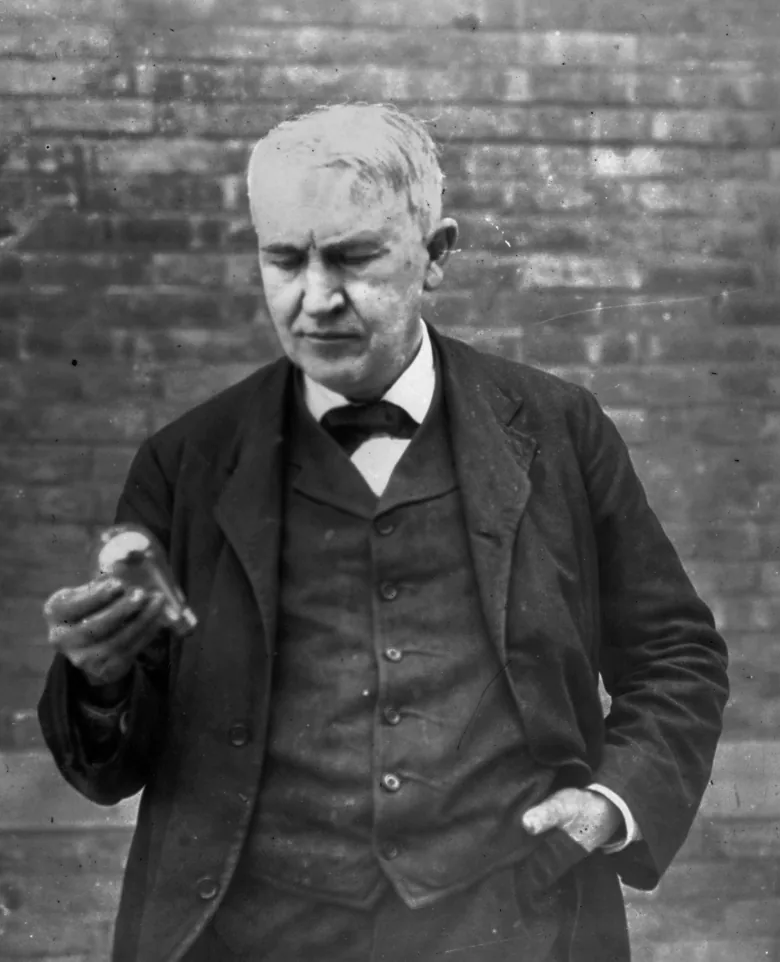Understanding Failure and Rejection
Lessons from Successful Entrepreneurs
- Embracing Failure as a Learning Experience
- Developing Resilience and Persistence
- Cultivating a Growth Mindset
- Seeking Feedback and Learning from Criticism
- Building a Support Network
Strategies for Overcoming Failure and Rejection
- Implementing Effective Planning and Risk Management
- Practicing Self-Compassion and Mindfulness
- Celebrating Small Wins and Progress
Inspiring Stories of Successful Entrepreneurs Who Overcame Failure and Rejection
Turning Failure and Rejection into Opportunities for Growth
Introduction
Failure and rejection are inevitable parts of life, and perhaps nowhere are they more prevalent than in the world of entrepreneurship. The road to success is often paved with countless setbacks, rejections, and even heartbreaks. But what separates successful entrepreneurs from the rest is their ability to bounce back and use these experiences as fuel for growth and improvement.
In this blog post, we will explore the crucial lessons that successful entrepreneurs have learned from their encounters with failure and rejection. We will discuss the importance of understanding and redefining these concepts, as well as strategies for overcoming setbacks and using them to propel ourselves forward. We will also share inspiring stories of well-known entrepreneurs who have transformed their failures into opportunities for growth and success.
By the end of this post, you will have a deeper understanding of how to deal with failure and rejection. Be better equipped to navigate the challenging journey of entrepreneurship. So, let’s dive in and learn from the best.
Understanding Failure and Rejection
The Reality of Entrepreneurship
The entrepreneurial journey is often romanticized, with stories of overnight success and meteoric rises to fame and fortune. However, the reality is that entrepreneurship is a challenging and uncertain path, filled with obstacles, setbacks, and failures. According to various studies, the majority of startups fail within the first five years of operation. As an entrepreneur, it is essential to recognize that failure and rejection are inherent aspects of this journey, and the sooner you accept and embrace them, the better equipped you will be to face them head-on.
Redefining Success and Failure
Our perception of success and failure plays a significant role in how we deal with setbacks and rejections. Society often paints success as a linear path of constant progress, with failure seen as a deviation from this path. However, this perspective is flawed and can lead to unrealistic expectations and disappointment.
Instead, it’s essential to redefine success and failure as two sides of the same coin. Success is not a destination but a process, and failure is an integral part of this process. Embracing failure as a learning opportunity allows entrepreneurs to grow and improve, ultimately increasing their chances of achieving their goals. By viewing failure as a steppingstone rather than a roadblock, you can develop a healthier mindset and resilience in the face of adversity.
Lessons from Successful Entrepreneurs
Successful entrepreneurs have experienced their fair share of failures and rejections. However, they have managed to turn these setbacks into valuable learning experiences that have contributed to their eventual success. Here are some key lessons that we can learn from these entrepreneurs:
Embracing Failure as a Learning Experience
Successful entrepreneurs understand that failure is not the end of the road but rather an opportunity to learn and grow. They analyze their mistakes and extract valuable insights that can help them refine their strategies, products, or services. By adopting this mindset, you can transform setbacks into valuable feedback that will guide you on your path to success.
Developing Resilience and Persistence
Resilience and persistence are crucial traits for entrepreneurs. Successful entrepreneurs have the ability to bounce back from failure and rejection, maintaining their motivation and commitment to their goals despite the obstacles they face. Cultivating resilience and persistence will help you stay focused and motivated, even when the going gets tough.
Cultivating a Growth Mindset
A growth mindset is the belief that one’s abilities and intelligence can be developed through hard work, dedication, and learning from failures. Successful entrepreneurs possess a growth mindset, which enables them to persevere through difficult times and continuously learn and improve. By fostering a growth mindset, you can develop the mental fortitude and adaptability needed to overcome setbacks and achieve success.
Seeking Feedback and Learning from Criticism
Successful entrepreneurs are not afraid to seek feedback and learn from criticism. They understand that constructive feedback, even when it’s negative, can help them identify areas for improvement and make better decisions. By actively seeking feedback and being open to criticism, you can gain valuable insights that will help you refine your business strategies and increase your chances of success.
Building a Support Network
No entrepreneur can achieve success entirely on their own. Having a strong support network of friends, family, mentors, and peers is crucial for maintaining motivation and emotional well-being during challenging times. Successful entrepreneurs invest in building and nurturing relationships that can provide them with encouragement, advice, and resources when facing failure and rejection. By surrounding yourself with a supportive network, you can better cope with setbacks and maintain the motivation to keep pushing forward.
Strategies for Overcoming Failure and Rejection
Developing a healthy mindset and learning from successful entrepreneurs is a great start, but it’s also important to have concrete strategies in place to help you overcome failure and rejection. Here are some strategies you can use to navigate setbacks and maintain your momentum:
Setting Realistic Goals and Expectations
One of the primary reasons entrepreneurs struggle with failure and rejection is due to unrealistic goals and expectations. It’s important to set achievable, measurable, and time-bound goals that accurately reflect your resources and capabilities. By setting realistic goals, you can reduce the likelihood of disappointment and maintain a clear sense of direction and purpose.
Implementing Effective Planning and Risk Management
Proper planning and risk management can help you anticipate potential failures and setbacks, allowing you to address them proactively. This may include conducting market research, developing contingency plans, or implementing monitoring systems to track your progress and identify potential issues. By being prepared for setbacks, you can minimize their impact and recover more quickly.
Practicing Self-Compassion and Mindfulness
Failure and rejection can take a toll on your mental and emotional well-being. Practicing self-compassion and mindfulness can help you maintain a healthy mindset and cope with setbacks more effectively. Self-compassion involves treating yourself with kindness and understanding when you experience failure, rather than being overly critical or harsh. Mindfulness techniques, such as meditation and deep breathing, can help you stay grounded and present in the face of adversity.
Celebrating Small Wins and Progress
It’s important to recognize and celebrate your progress, even when it seems small or insignificant. Celebrating small wins can boost your motivation, help you maintain momentum, and provide a sense of accomplishment. Acknowledging your progress can also help you build confidence and resilience, making it easier to cope with setbacks and rejections when they arise. Regularly take stock of your achievements and celebrate the progress you’ve made, no matter how small it may seem.
Inspiring Stories of Successful Entrepreneurs Who Overcame Failure and Rejection
Many successful entrepreneurs have faced significant setbacks and failures before achieving their dreams. Their stories serve as powerful reminders that failure and rejection are often essential components of the journey to success. Here are a few inspiring examples:

1. Steve Jobs
The late co-founder of Apple Inc. was no stranger to failure. In 1985, Jobs was ousted from the very company he helped create. However, he didn’t let this setback define him. Instead, he went on to found NeXT, a computer platform development company, and Pixar Animation Studios, which became one of the most successful animation studios in the world. In 1997, Apple acquired NeXT, and Jobs returned to the company, eventually leading it to become the global powerhouse it is today.
2. Oprah Winfrey
Oprah Winfrey, the media mogul and philanthropist, faced numerous challenges throughout her life, including poverty, abuse, and discrimination. Early in her career, she was fired from her first television job as an anchor in Baltimore. Instead of letting this rejection derail her ambitions, Winfrey used it as motivation to pursue her passion for hosting talk shows. She eventually became the host of “The Oprah Winfrey Show,” the highest-rated talk show in television history.


3. J.K. Rowling
Before becoming the world-famous author of the Harry Potter series, J.K. Rowling faced multiple rejections from publishers. In fact, the first Harry Potter book was rejected by 12 publishers before being picked up by Bloomsbury. Today, the Harry Potter series has sold over 500 million copies worldwide and has been translated into 80 languages, making Rowling one of the most successful and influential authors of all time.
4. Arianna Huffington
The co-founder of The Huffington Post experienced her fair share of failures before finding success in the world of online media. Huffington’s second book was rejected by 36 publishers, and her first foray into politics ended in defeat. Despite these setbacks, she persisted and eventually launched The Huffington Post, which became one of the most popular news and blog sites on the internet before being acquired by AOL for $315 million.


5. Thomas Alva Edison
The renowned inventor and businessman is famous for his persistence and resilience in the face of failure. Edison famously said, “I have not failed. I’ve just found 10,000 ways that won’t work.” This mindset allowed him to persevere through countless setbacks and eventually achieve success with inventions like the phonograph and the electric light bulb.
These stories demonstrate that failure and rejection are not barriers to success, but rather stepping stones on the path to achieving greatness. By embracing setbacks and learning from them, these entrepreneurs were able to overcome adversity and ultimately achieve their dreams.
Turning Failure and Rejection into Opportunities for Growth
Transforming failure and rejection into opportunities for growth is the key to unlocking your potential as an entrepreneur. By embracing setbacks as learning experiences and adopting a growth mindset, you can harness the power of adversity to propel yourself forward. Here are some steps to help you turn failure and rejection into opportunities for growth:
1. Reflect on the experience
Take the time to analyze and reflect on the failure or rejection you experienced. Ask yourself what went wrong, what you could have done differently, and what lessons can be gleaned from the situation. This process will help you gain valuable insights and identify areas for improvement, which are crucial for personal and professional growth.
2. Extract actionable lessons
Once you have reflected on the experience, identify specific lessons and actionable steps that can help you improve and avoid similar setbacks in the future. This might involve refining your business strategy, seeking additional mentorship or training, or enhancing your product or service offering.
3. Develop a plan for improvement
With the lessons and actionable steps in mind, develop a plan to address the areas that need improvement. Set clear, achievable goals and establish a timeline for achieving them. This plan will serve as a roadmap to guide you toward growth and progress, helping you move beyond the failure or rejection.
4. Implement and adapt
Put your plan into action and remain flexible as you work towards your goals. As you implement your plan, be prepared to adapt and adjust based on new information, feedback, or circumstances. Staying adaptable will help you navigate the ever-changing landscape of entrepreneurship and ensure that you’re continuously learning and growing.
5. Share your experiences
Sharing your experiences with failure and rejection can help others learn from your journey and foster a culture of growth and resilience. By openly discussing your setbacks, you can inspire and support others who may be facing similar challenges. This also helps to normalize the conversation around failure, making it less daunting for everyone involved.
6. Maintain a positive attitude
Maintaining a positive attitude in the face of failure and rejection is essential for turning these experiences into opportunities for growth. Focus on your progress and the lessons learned, rather than dwelling on the setbacks themselves. This will help you stay motivated and resilient, allowing you to bounce back more quickly from adversity.
By following these steps, you can transform failure and rejection from obstacles into powerful catalysts for personal and professional growth. Embrace the lessons that come with setbacks, and use them as fuel to propel yourself toward success.
Conclusion
Embracing failure and rejection as integral parts of the entrepreneurial journey is essential for long-term success. By understanding the reality of entrepreneurship and redefining success and failure, you can develop a healthier mindset that fosters resilience and growth. Learning from the experiences of successful entrepreneurs who have overcome setbacks and rejections serves as inspiration and provides valuable insights into how to navigate these challenges.
Incorporating practical strategies such as setting realistic goals, implementing effective planning and risk management, practicing self-compassion and mindfulness, and celebrating small wins can help you better cope with failure and rejection. By actively turning these setbacks into opportunities for growth, you can unlock your full potential as an entrepreneur.
As you continue on your entrepreneurial journey, remember that failure and rejection are not the end but rather stepping stones on the path to success. Maintain a positive attitude, embrace the lessons that come with setbacks, and use them as fuel to propel yourself forward. By doing so, you’ll not only increase your chances of success but also inspire and support others facing similar challenges. In the words of the renowned inventor Thomas Edison, “Our greatest weakness lies in giving up. The most certain way to succeed is always to try just one more time.”
